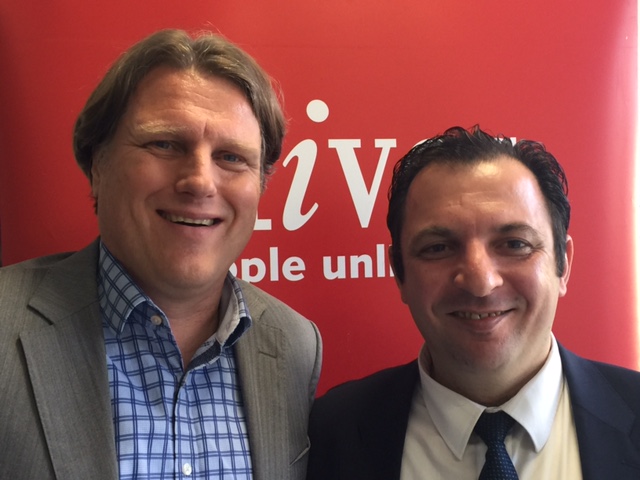Edited and translated version of original interview in Dutch by PZC
Just over a year ago, our long-standing partner Mazen Darwish, director of the Syrian Center for Media and Freedom of Expression, was languishing in a Syrian prison for the simple reason that he fought for freedom of expression. The lawyer and journalist was released in August last year as a result of an amnesty, but his charges of “terrorism against the state” still stand.
The Provinciale Zeeuwse Courant (PZC) sat down to talk with Mazen at our headquarters in The Hague. He is in the Netherlands to receive the 2016 Four Freedoms Award for freedom of speech, which was awarded along with five other Four Freedoms prizes at a ceremony today in Middelburg.
He speaks softly, “I’m sure if there had been more room in Syria for troublemakers like me, we would not have had this terrible conflict.” Mazen Darwish believes that countries where people cannot express their opinion are a breeding ground for extremist groups. “If freedom of expression is not part of the culture, it is easier for radical movements to get people to join them. If people cannot express their opinions and ideas, if their views are not respected, they look for another channel. Religion, for example. And then they run the risk of being pressured into fighting for extremist organisations.”
Arrest and torture
Despite repeated harassment from the authorities, Mazen Darwish continued working as a human right lawyer in Syria. When the government closed the Center, he focused on freedom of expression and reported on the uprising against Assad that started in March 2011. He and several colleagues were arrested in 2012 and tortured. Since his release eight months ago, he lives in Germany.
He has paid a high price for his ideals, but stresses, “This is not a profession, it is my life. I have chosen this path and I accept the consequences. If I sum up all the positives and the negatives that have come out of my ordeal, I think our society is the winner and my losses are purely personal.”
Receiving the Roosevelt Four Freedoms Award increases his responsibility, says Darwish. “One minute I was happy with the prize. Then I realised that it requires me to work even harder for the freedoms that Franklin D. Roosevelt formulated. I’m now part of his concept, like a kind of heir, and feel inextricably connected to those who hold those values as their own. This means I have to do my absolute best.”
Photo: Mazen Darwish (right) and Hivos director Edwin Huizing (left)




